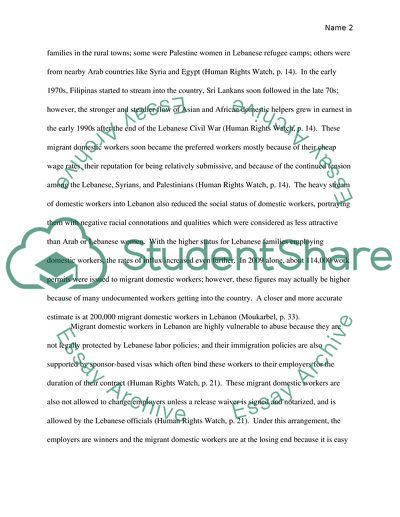Cite this document
(Domestic Violence towards Women Immigrant Workers in Lebanon Research Paper, n.d.)
Domestic Violence towards Women Immigrant Workers in Lebanon Research Paper. Retrieved from https://studentshare.org/social-science/1775123-domestic-violence-towards-women-immigrant-workers-in-lebanon
Domestic Violence towards Women Immigrant Workers in Lebanon Research Paper. Retrieved from https://studentshare.org/social-science/1775123-domestic-violence-towards-women-immigrant-workers-in-lebanon
(Domestic Violence towards Women Immigrant Workers in Lebanon Research Paper)
Domestic Violence towards Women Immigrant Workers in Lebanon Research Paper. https://studentshare.org/social-science/1775123-domestic-violence-towards-women-immigrant-workers-in-lebanon.
Domestic Violence towards Women Immigrant Workers in Lebanon Research Paper. https://studentshare.org/social-science/1775123-domestic-violence-towards-women-immigrant-workers-in-lebanon.
“Domestic Violence towards Women Immigrant Workers in Lebanon Research Paper”, n.d. https://studentshare.org/social-science/1775123-domestic-violence-towards-women-immigrant-workers-in-lebanon.


